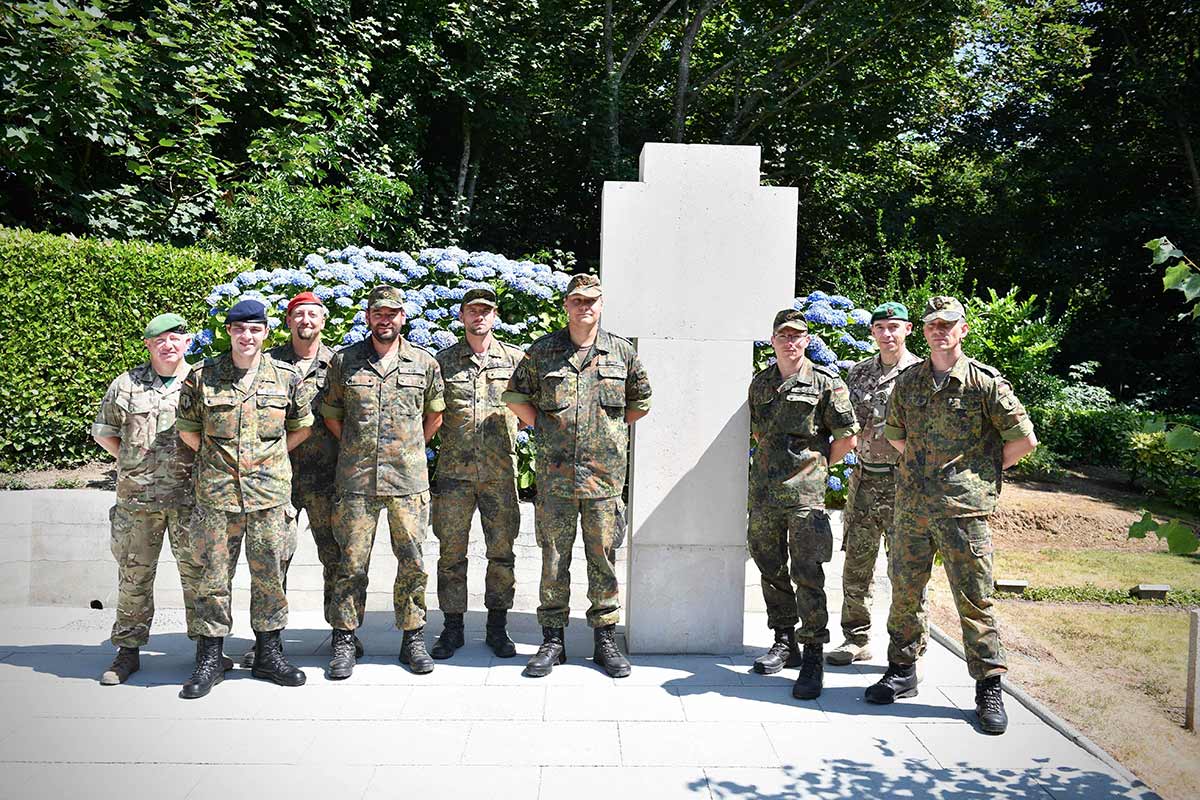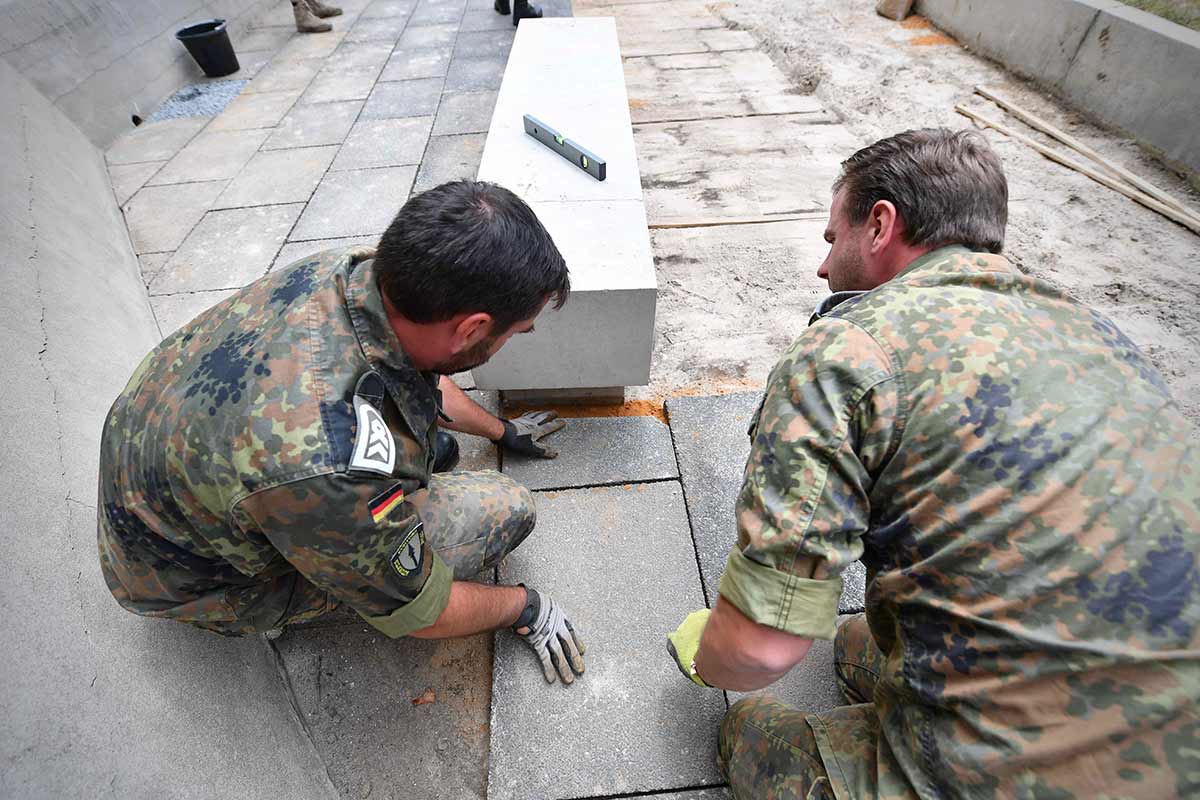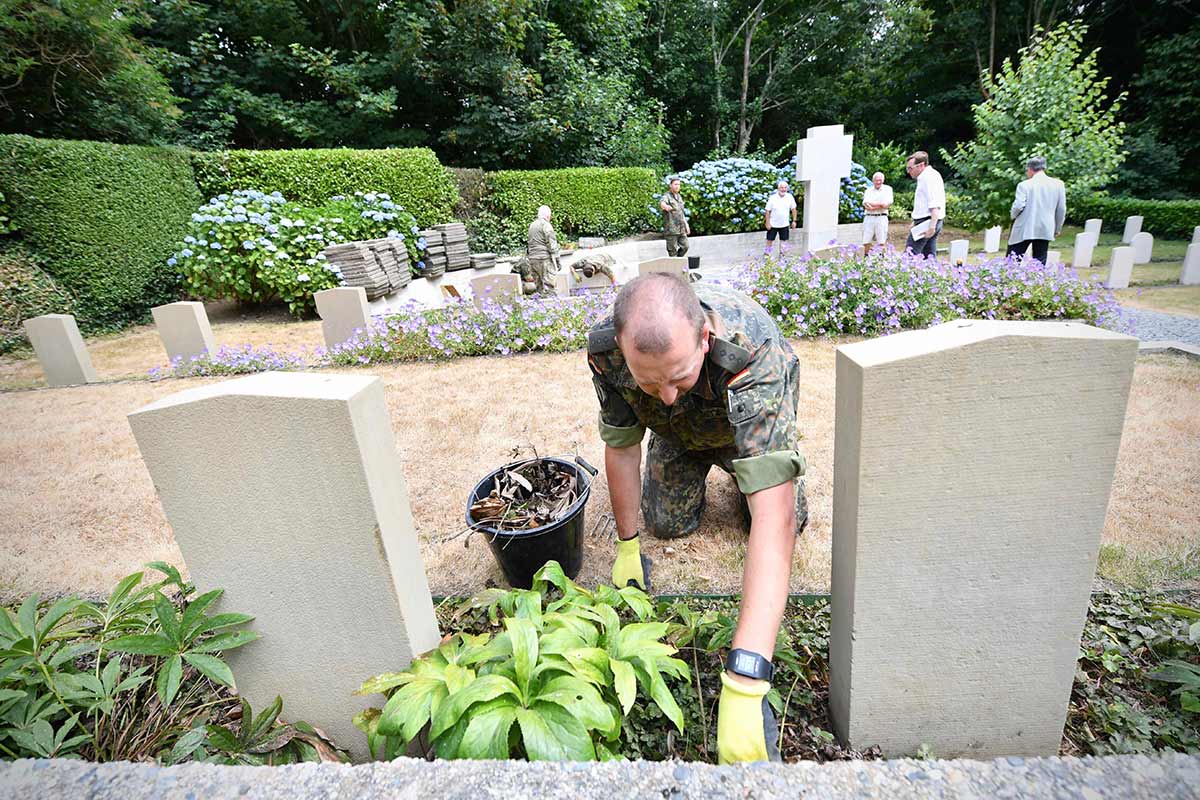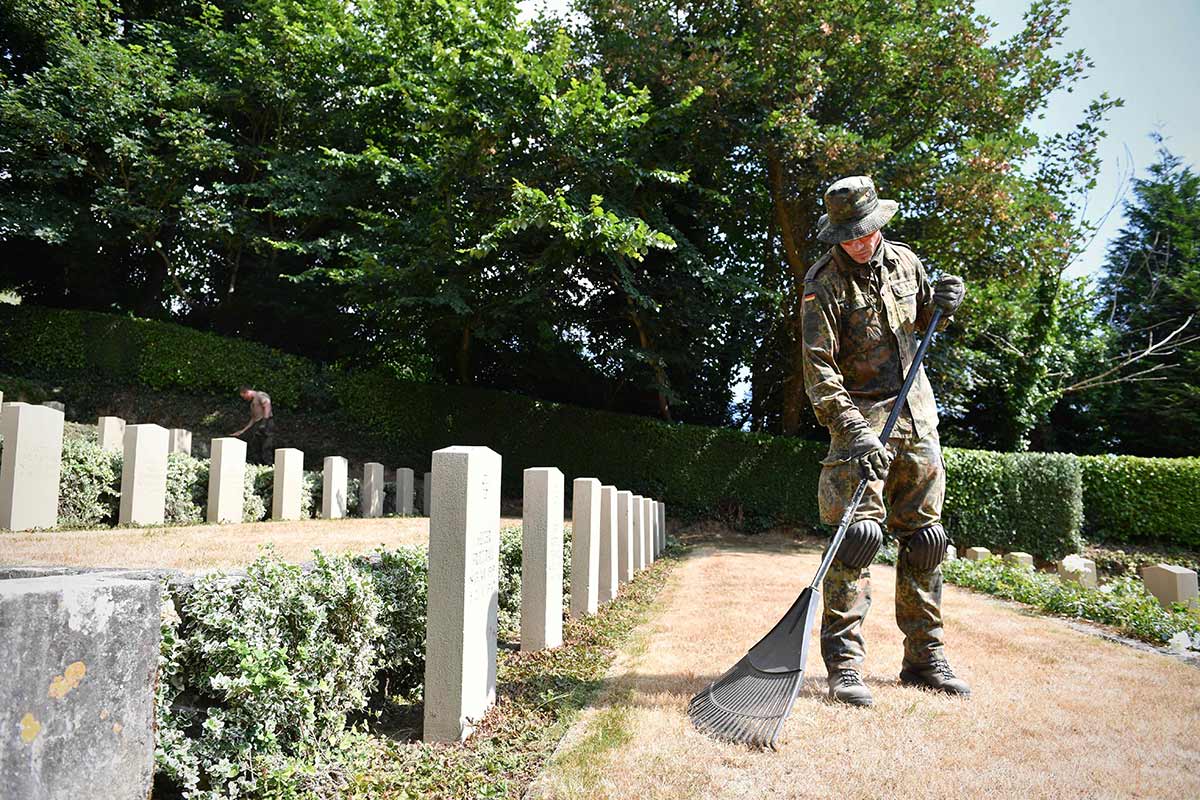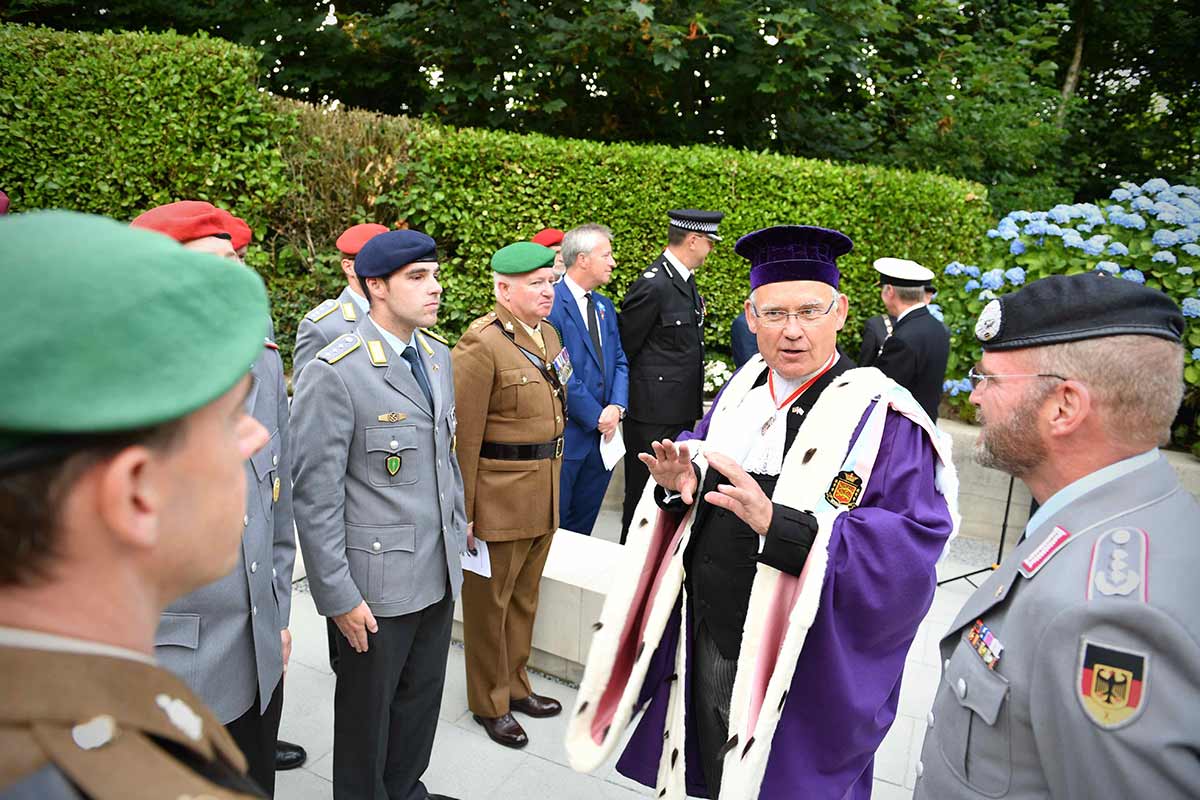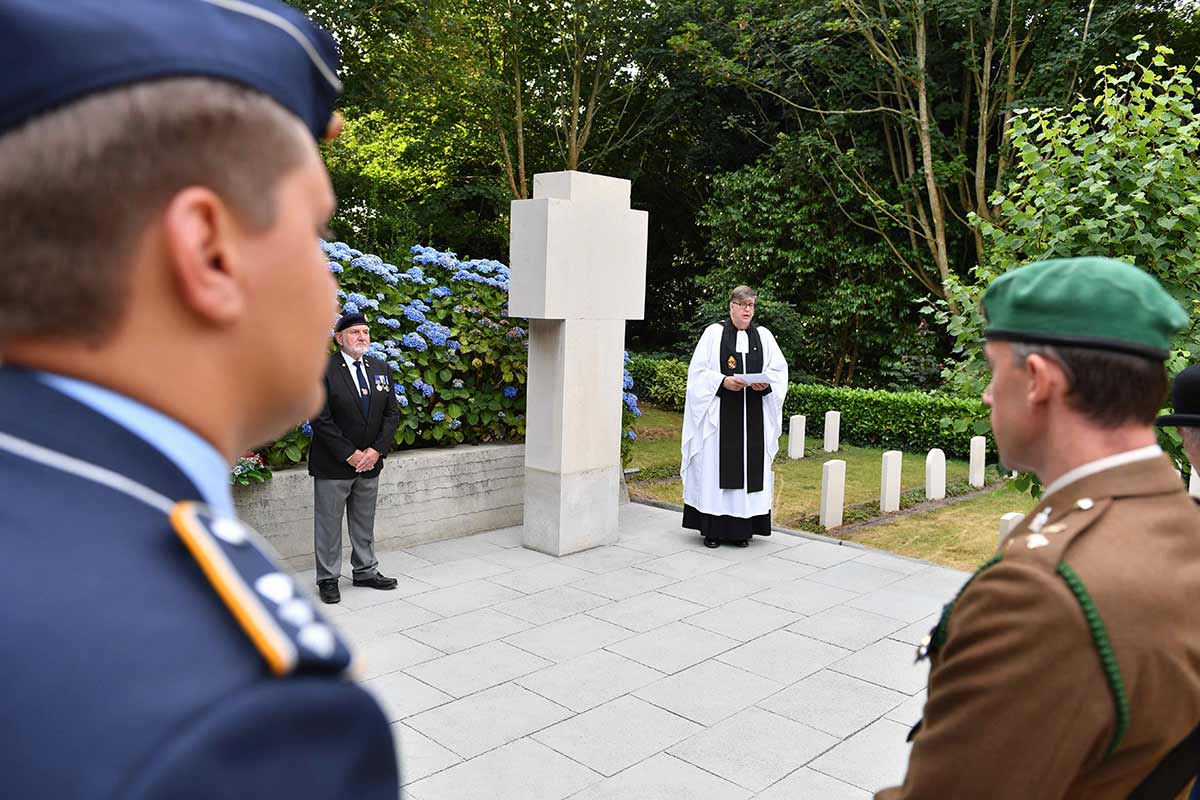In Good Repair – German soldiers mend relations with Channel Islands
Former enemies, now allies, British and German soldiers have come together to work on a unique project on the Channel island of Guernsey – restoring the war graves of military personnel who died on the island during the Second World War.
It is the first time the German military has returned to Guernsey in uniform since the Nazi occupation of the Channel Islands that lasted until 1945.
The troops serve with NATO’s Allied Rapid Reaction Corps based in Gloucestershire and were invited to work at the small military cemetery at Fort George on Guernsey’s east coast, which includes 111 German war graves. The visit was organised by the Volksbund (VDK), the German War Graves Commission.
Guernsey resident Graham Williams welcomed the return of German troops to the island. He said, “Some people here have long memories, but the majority of people say it’s over and done with and it’s part of our history.”
German Captain Sebastian Kühne from the Allied Rapid Reaction Corps added, “When we arrived on Guernsey we had a very warm reaction – so many people supporting us and they offered their spare time to help us with our endeavours, providing us with tools, and showing us around the island.
“I feel very touched to work on the graveyard and see the names of the British and German soldiers that died here because they are very young, most younger than me.”
The NATO soldiers set to work pressure washing and repairing the headstones under the supervision of experts from the Commonwealth War Graves Commission.
The two-week exercise concluded with a rededication ceremony involving the Lieutenant-Governor of Guernsey, British and German veterans, as well as a number of local islanders.
German businessman Johann Andreas Werhahn whose father had served as a corporal during the German occupation had travelled from northern Germany just to be part of the event.
He said: “I’m thankful that my father came back home. He rarely spoke about the war, but he told us he was in Guernsey.
“In Germany commemoration is done very differently, so it was good to be here for the ceremony.”
The Service ended with the laying of a special wreath incorporating both the Poppy and the German flower of remembrance, the Forget-Me-Not – symbolic of the common bond that unites rather than divides today’s generation of NATO soldiers.
All photographs used with permission from the Allied Rapid Reaction Corps
Videos used with permission from forces.net
The Guernsey Press story “German soldiers taken aback by islanders’ warm welcome” (PDF).

